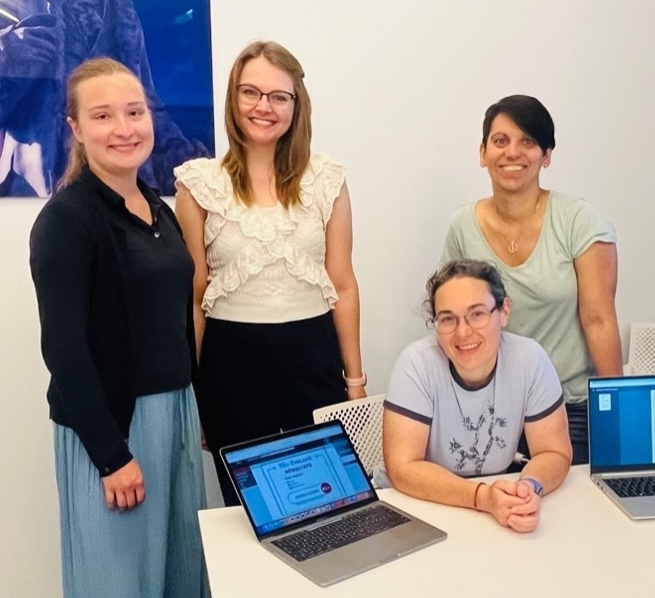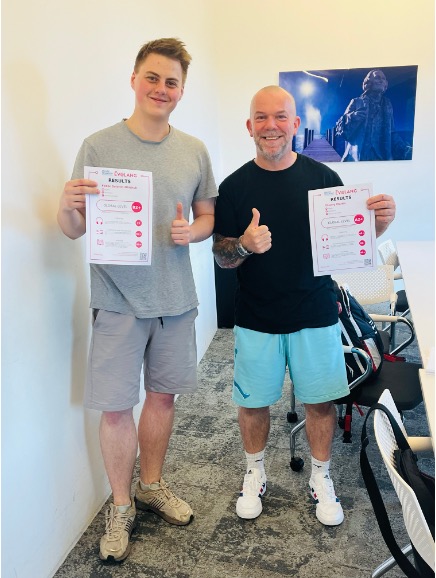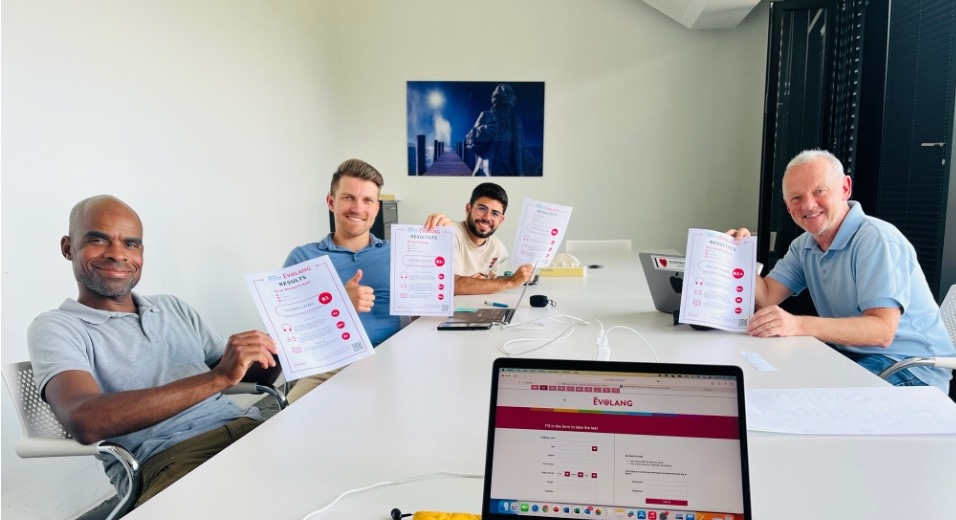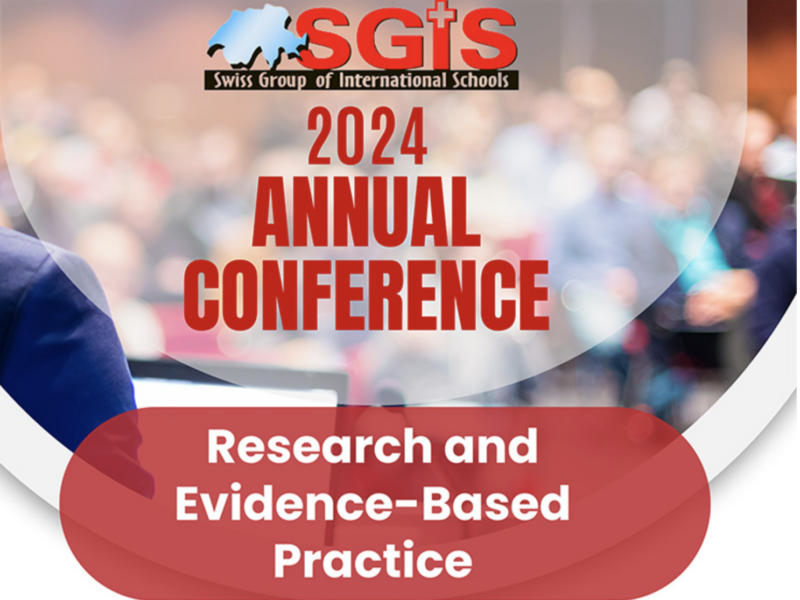Institut Le Rosey is a French-English bilingual school, which also offers instruction in students’ home language(s): English, French and Languages departments combined make up half of all teaching staff, a team 56 strong. Our Vade Mecum states:
In cultural terms, the school’s bilingualism has an enormous impact on everyday life: languages are used on a daily basis; much of the terminology used is French; and the school’s character and philosophy owe as much to French as to American or British models. All teachers are urged to develop their “other” language both as an aid to understanding the school and an important aspect of their professional development.
Although the school does not have specific rules regarding language level expectations for its staff, a commitment to the development of communication in both French and English has led to developing a bespoke language programme for adults in our community. We celebrate how our programme has expanded from one or two beginner French groups a term, with instructors on rotation, to our current scheme, where participants commit for the school year, have a dedicated instructor, and work towards an assessment at the end of the year. Kate Aronson, certified EAL and FLE instructor, has been instrumental in improving this offering to deliver courses in both English and French from A1 to B1 levels. To shed light on our languages programme, I interviewed Kate.
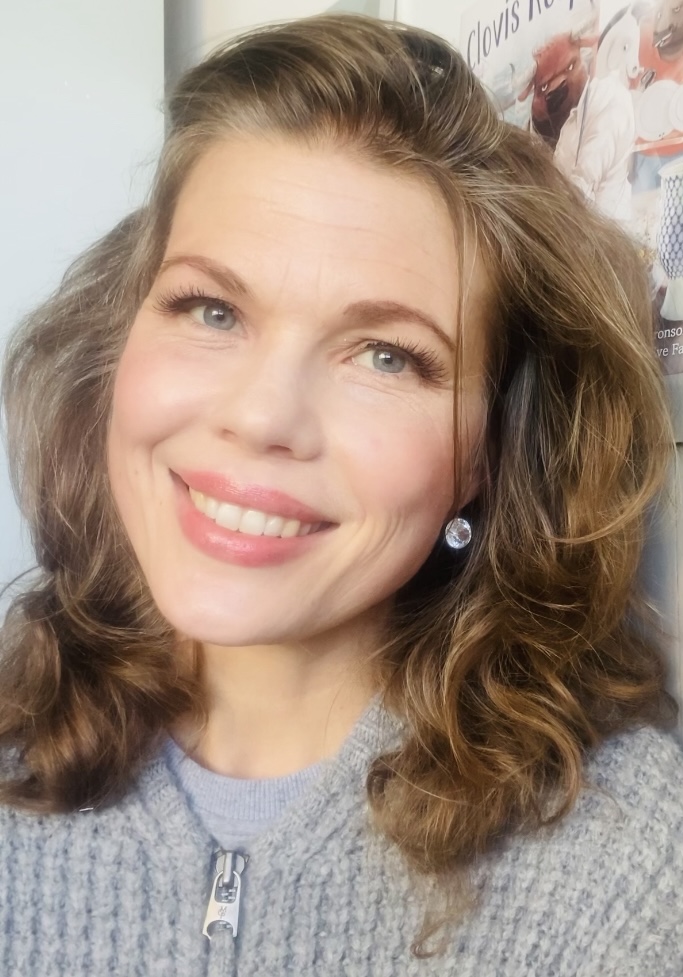
Eliana Marcenaro: Kate, how would you describe the goals of the current adult language courses at Le Rosey?
Kate Aronson: Our programme aims to bring together personnel from all corners of Le Rosey and help them gain confidence in their French/English in order to build a more cohesive bilingual community. At meetings and assemblies, adults may communicate in their preferred language from the two, so our goal is to support everyone reaching a minimum B1 level to engage in dialogue.
Eliana Marcenaro (EM): How many people participate, and in what group configuration?
Kate Aronson (KA): An average of 50 adult learners sign up for language courses each year. This includes teachers and staff, members of administration, IMMA musicians, spouses and au pairs. Each group is organised by language and level (we use the CECR nomenclature): A1, A2, or B1. Depending on demand, we will also organise groups to help prepare for the DELF or FIDE certifications required for Swiss permits.
EM: Do you have a system for creating groups? It must be difficult to find mutually convenient times for staff and faculty working in boarding school where schedules are so tight…
KA: Participants are placed in groups based on their level and availability (which they indicate on our sign-up form in September). In general, lessons take place during ‘after-school’ hours on campus, roughly 14h00 to 19h00 on Mondays, Tuesdays, or Wednesdays. I am proud of the fact that despite all the scheduling constraints I can still create groups by language, level and availability for the vast majority of cases.
EM: With groups for each of the CECR levels A1-B1 in both languages, plus scheduling considerations, I imagine your lessons will pack a lot. What would a typical lesson look like?
KA: Each group meets once a week for 60 minutes, plus I give one written assignment per week. In class, we focus on listening, speaking, and reading via texts, audio, short videos, songs, poems, games, pair work or class-wide discussions. At A2+/B1 levels, we might also add in a reader’s theatre play, a recent newspaper article, or occasionally watch and analyse a film.
EM: What do you like the most about working with adults?
KA: I have been a language teacher for 16 years now and have taught all ages, but adult learners bring a wealth of experience and self-awareness into the classroom that younger learners cannot. Adults are there to make an investment in themselves and their futures—they are there because they want to be. This makes the time in class that much richer and more rewarding for all involved.
EM: To what extent would you say the Adult Language Programme is successful?
KA: Simply put, the programme helps teachers and staff reach their language learning goals. It cannot substitute personal drive and hard work of course, but it offers guidance and support to those who seek a certain accountability each week for the duration of the school year. Further, learners see the fruits of their labor when they can better follow assemblies and meetings, communicate more easily with their colleagues, and succeed at their Ev@lang certification in June. A number of them go on to pass their DELF exams as well.
The fact that this program gives participants something to be proud of is, to me, the measure of its success.
Interested staff and faculty: language courses for 2024-25 will be announced at the rentrée.
